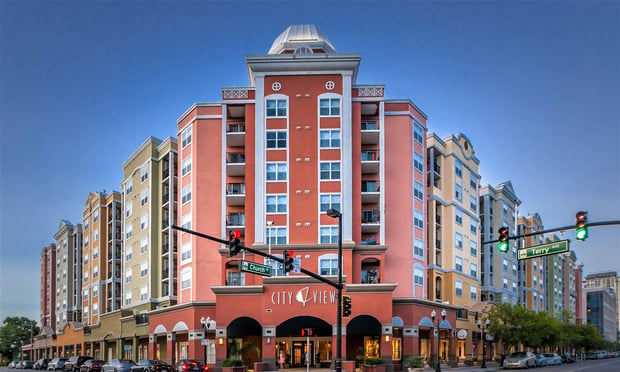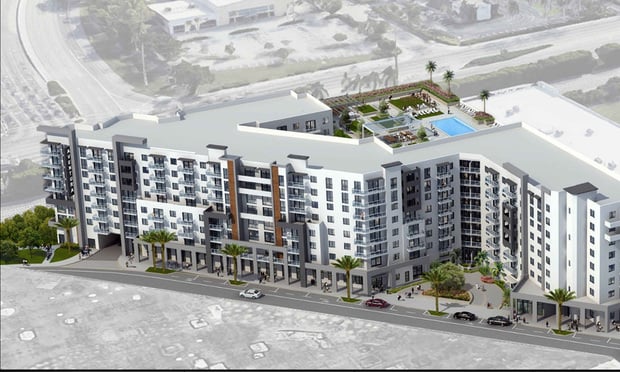Inland Real Estate Trust Inc. of Oak Brook, ILL, a Chicago suburb, is emerging as the giant killer among neighborhood shopping center buyers in Central Florida and throughout the state.
Of the Illinois REIT's total Florida portfolio of 2.11 million sf at 16 properties, 11 centers totaling 1.21 million sf are in Central Florida.
Inland is buying, on average, one shopping center per month. The company pays an average $95 per sf for its properties, based on the closing prices of the one million sf the REIT has purchased this year alone.
"We focus on purchasing grocery and discount store-anchored centers because they are more resistant to recession," Steve Sanders, Inland's senior vice president, tells GlobeSt.com.
David W. Marks, president, Marketplace Advisors Inc., Orlando, agrees. Sales at department stores, apparel shops and jewelry boutiques are down but grocery sales are up, Marks says. "We still need to eat," he notes.
Neighborhood centers are high on investors' buy lists because they are proving to be an alternative to the bear stock market, Marks says. "However, there is a major threat to the neighborhood, grocery-anchored shopping center sector that not be full appreciated (yet) by the investment community," the broker/consultant tells GlobeSt.com.
The threat is from retail supercenters such as Wal-Mart and Target. "These 200,000-sf behemoths are taking sales away from both neighborhood centers at one end of the retail spectrum and from regional malls at the other end," Marks says.
"The question is, how deep is the threat to sales?" That depends "on the niche that the grocery store serves and its proximity to the supercenter," he says.
Older neighborhood centers with a good leasing history have solid value and are popular with investors "because they have a proven track record and, in many cases, have trade areas that have grown up around them, increasing the demand and increasing sales at the center."
Conversely, the potential negatives of older neighborhood centers are that "the demographics in the trade area may have deteriorated and the property has some type of functional obsolescence or environmental issue that detracts from their value," Marks says.
Investors are in a buying mode today because "grocery-anchored centers in solid locations are still a good play, especially when compared with what the stock market is doing," John M. Crossman, senior vice president, director of retail services, Trammell Crow Co., Orlando, tells GlobeSt.com.
For example, Crossman is seeing prices of $95 per sf to $100 per sf for Publix Supermarket-anchored centers. Even at those numbers, he says investors can recoup their money in a decent timeframe "if the area is strong enough and they have a competent leasing and management team."
Crossman cautions, however, that "an inexperienced ownership group could really suffer if it buys a center that is in a 'green' area and they do not have the knowledge of how to work with the tenants."
George D. Livingston, founder/chairman, Realvest Partners Inc., Maitland, FL says neighborhood centers are selling now because investors see them as a low risk. "And they are, as long as the anchor pays," Livingston tells GlobeSt.com. Tax-exchange buyers are also scouting for neighborhood properties.
"Older centers are often purchased for redevelopment, like Winter Park Village, or for drug stores," Livingston says. Prices are driven by current and future rents and occupancies. Investors "must think they will earn future profits, given their strategy," the developer says.
On the development side, Livingston tells GlobeSt.com "it's really tough to break in" because "all chains have their preferred developers." He says "they give them repeat business and then beat up on them on rate and price."
Another little played-up factor in the neighborhood center investment area is that minimal new product is in the pipeline.
"Statewide, we see little excess supply--a key factor indicating steady, but not necessarily dramatic growth for the immediate future," says John Joyce, vice president, retail development, Florida division, Aronov Realty Management Inc. of Montgomery, AL.
(Please see related articles on the Minneapolis and National pages.)
Want to continue reading?
Become a Free ALM Digital Reader.
Once you are an ALM Digital Member, you’ll receive:
- Breaking commercial real estate news and analysis, on-site and via our newsletters and custom alerts
- Educational webcasts, white papers, and ebooks from industry thought leaders
- Critical coverage of the property casualty insurance and financial advisory markets on our other ALM sites, PropertyCasualty360 and ThinkAdvisor
Already have an account? Sign In Now
*May exclude premium content© 2024 ALM Global, LLC, All Rights Reserved. Request academic re-use from www.copyright.com. All other uses, submit a request to [email protected]. For more information visit Asset & Logo Licensing.








